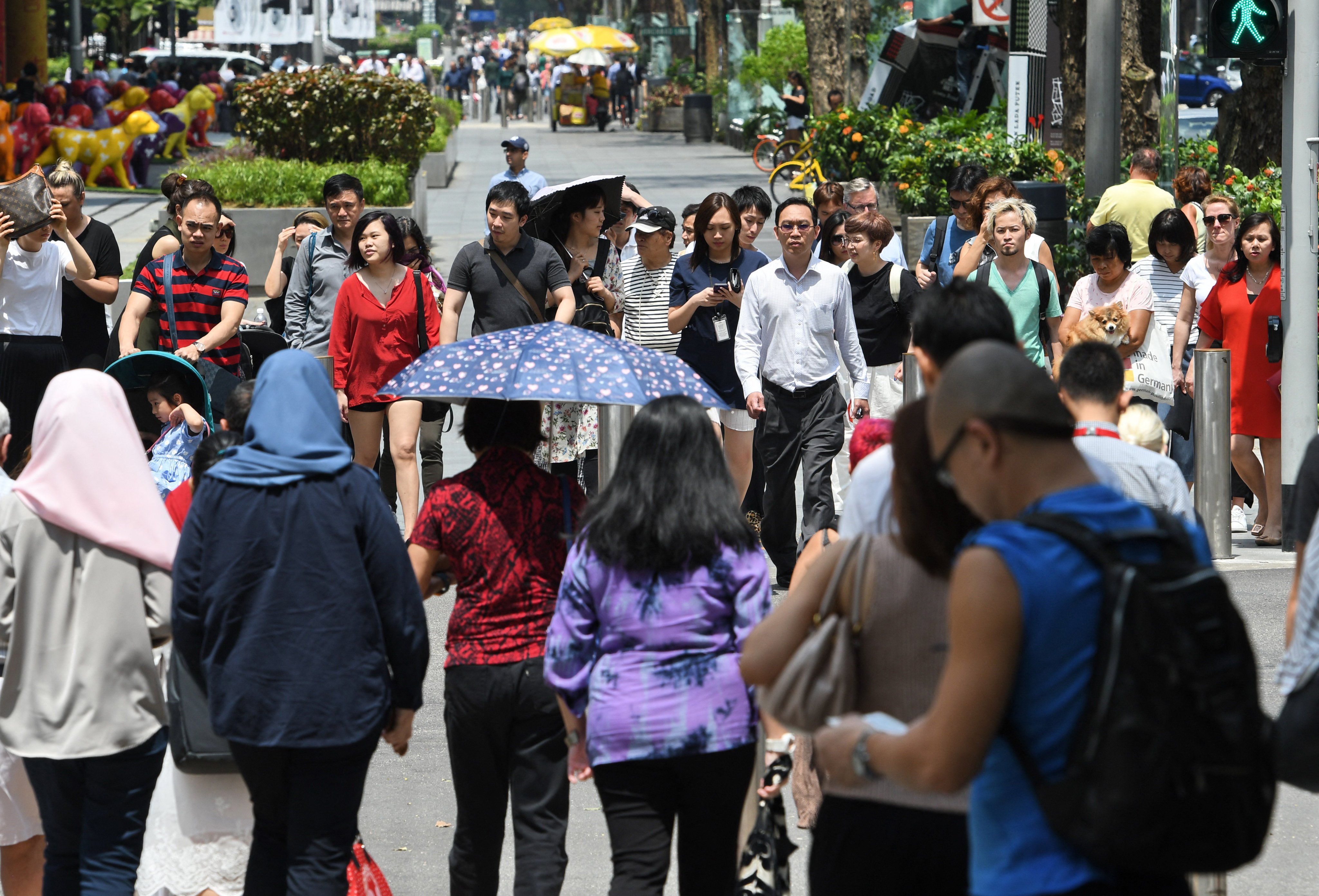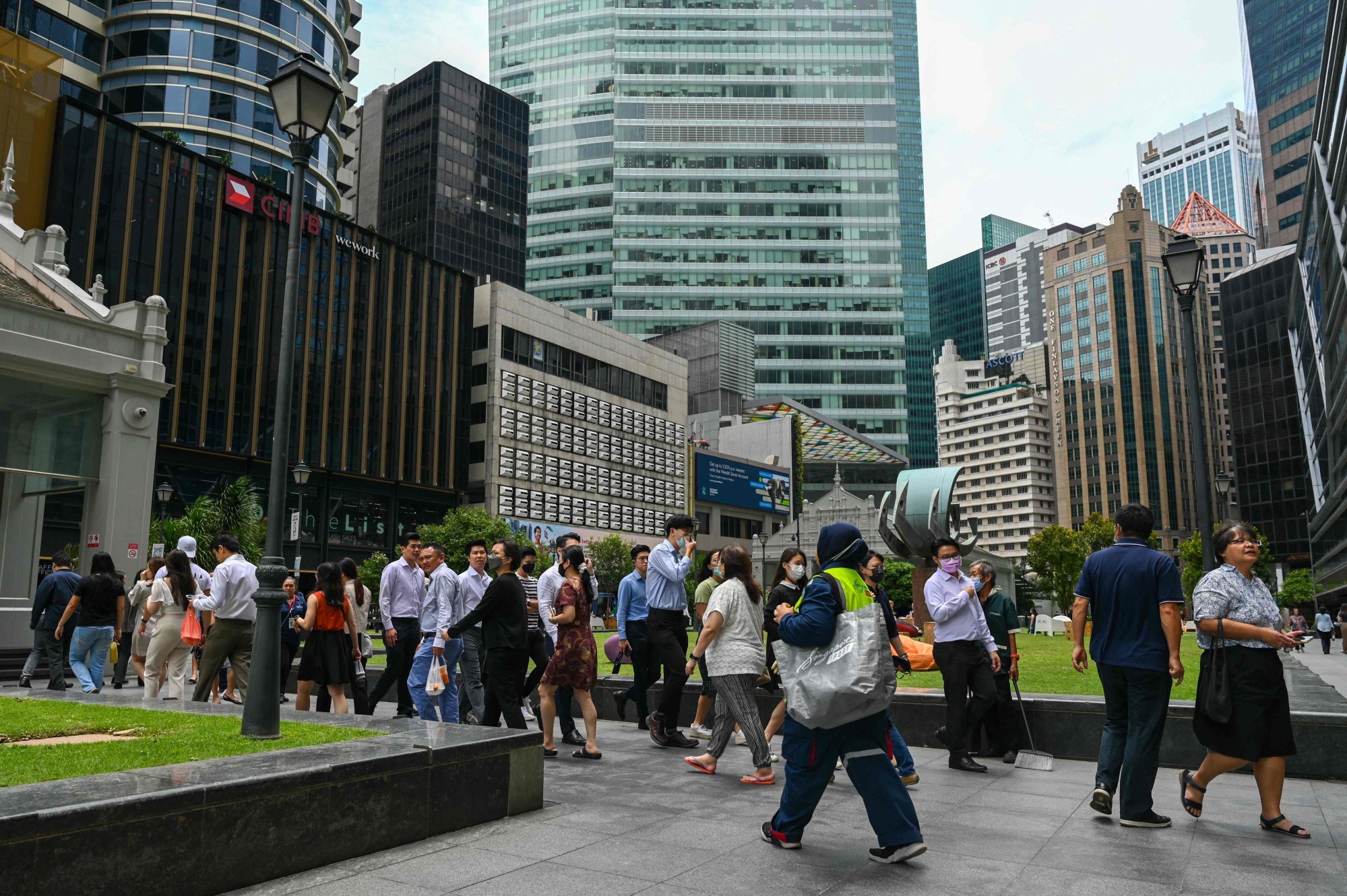Does Chinese privilege exist in Singapore? Study finds views differ by age, race
Younger and minority Singaporeans are more likely to perceive Chinese residents as having unspoken social advantages, the survey finds

Das still remembers an offhand remark from a former colleague who, upon seeing his hairy legs, said that they resembled a monkey’s.
For the 30-year-old ethnic Indian Singaporean postgraduate student, who spoke to This Week in Asia under a pseudonym, the comment reflected a kind of casual insensitivity he said he had encountered as a racial minority in Singapore.
“I would ascribe the confidence of saying such things without having to endure a blowback or to blow it off as a joke to Chinese privilege,” he said, when asked about moments when he felt the majority Chinese population held an unspoken advantage.
His experience aligns with sentiments expressed by some respondents in a new study by the Institute of Policy Studies (IPS) at the Lee Kuan Yew School of Public Policy, which sheds light on how Singaporeans of different ages and ethnicities perceive racial inequality – and the very idea of “Chinese privilege” – in the multiracial city state.
Released on Friday, the study surveyed 4,000 residents and found that while only 44.7 per cent of respondents overall said they believed Chinese privilege exists, younger Singaporeans were far more likely to hold the view. Among those aged 18 to 35, seven in 10 said it existed, compared with less than three in 10 of older respondents above 65 years of age, according to the study conducted between April and August last year.
Furthermore, six in 10 Malays and Indians said they believed Chinese Singaporeans enjoy certain advantages, while just four in 10 Chinese respondents held the view.
Singapore’s resident population is around 74 per cent Chinese, 13.5 per cent Malay and 9 per cent Indian, with the remaining 3.2 per cent comprising other ethnicities. English is the main working language, although Malay, Mandarin and Tamil are also recognised as official languages.

The survey found that minority respondents were more likely to report encountering racial or religious jokes, with 37 per cent of Malays and 39 per cent of Indians saying they heard such jokes at least occasionally, compared with 17 per cent of Chinese respondents.
Respondents from minority groups were more likely to believe it is easier to be a Chinese Singaporean, with 63 per cent of Malays and Indians and 69 per cent of those from other races agreeing, compared with 59 per cent of Chinese respondents.
Fewer Chinese respondents strongly agreed with this view, at just 8 per cent, compared with 13 per cent of Malays and 16 per cent of Indians.
The study also found that 27 per cent of Malays and 32 per cent of Indians reported feeling left out of conversations because of their race or religion at least occasionally, compared with fewer than 10 per cent of Chinese respondents.
Adam, a Malay-Muslim man, told This Week in Asia he ended an internship at a Singaporean multinational early due to what he felt was an unwelcoming work culture where language and informal networks made it difficult for non-Chinese staff to feel included.
Unhandled type: inline-plus-widget {“type”:”inline-plus-widget”}
The 23-year-old Singaporean, who asked to use a pseudonym, recalled how supervisors would speak in Mandarin or Chinese dialects to the Chinese workers, often leaving out those who were not of the same race.
It was the first time he experienced what he saw as Chinese privilege, he said, recalling how Chinese workers appeared to get preferential treatment in the form of longer breaks and easier tasks.
“It was quite distinct; there was a majority clique inside who were Chinese, and they were running the show there,” he said.
I think it’s mostly because of a numbers gameDas, an ethnic Indian Singaporean
Das said he had observed similar dynamics during national service, when his platoon mates spoke Mandarin even during training drills.
“I’d just be dumbstruck at the side, kind of figuring out how to help rather than being part of my section,” he said, adding that he picked up some Mandarin so he could understand what was happening.
Despite these experiences, Das argued the issue was one of demographics rather than official policy.
“It’s really important to draw a hard line that it is not because of some national preference or government policy that races are feeling different ways about life in Singapore; I think it’s mostly because of a numbers game, and what Chinese privilege is really majority privilege,” he said.
For a lasting solution, Das suggested the focus should be on education, starting with how parents teach their children about interacting with other races.
Mathew Mathews, one of the study’s researchers and head of the IPS Social Lab, said racial minorities and younger people were more exposed to discussions about concepts like “privilege”, which had led to some gains for minority groups.
But he noted that understanding privilege was only the first step.
“The big question of course beyond an understanding and acknowledgement of the existence of privilege is what will people do about that – has it created greater empathy, willingness to stand up when prejudice and discriminatory actions happen?”
“Of course, the downside, which can be seen in the US, is that when concepts such as privilege are thrown around and there are attempts to make the majority feel that they have unfairly been given advantages, it can result in backlash,” he added.
Singapore’s government, for its part, has taken steps to promote racial harmony through legislation and public education efforts.
In February, it passed the Maintenance of Racial Harmony Act, which allows authorities to issue restraining orders against individuals who produce content deemed harmful to racial harmony. The law also includes a community remedial initiative, offering those who commit less severe race-related offences an opportunity to restore community ties in lieu of prosecution.
Former prime minister Lee Hsien Loong also addressed the issue in his 2021 National Day Rally speech, where he pointed to the structural disadvantages faced by those who spoke only Mandarin or Chinese dialects when English was adopted as Singapore’s working language.
“Therefore, it is entirely baseless to claim that there is ‘Chinese privilege’ in Singapore,” Lee said in Mandarin. “We treat all races equally, with no special privileges. Few countries have made this their policy, and even fewer have actually managed to make it a reality.”